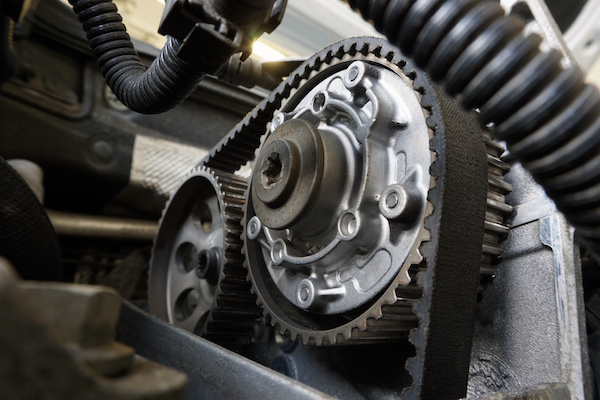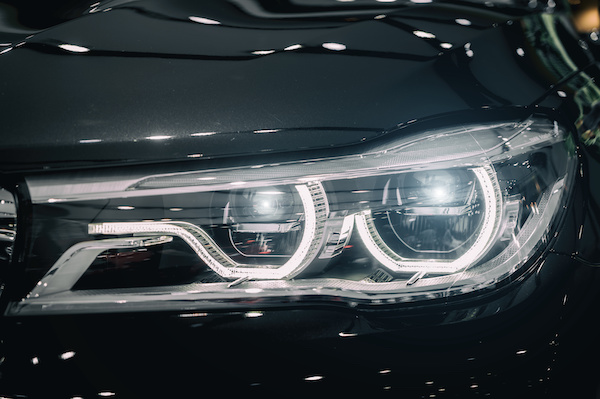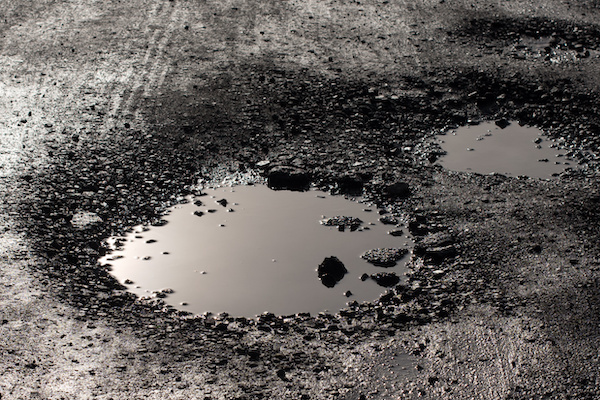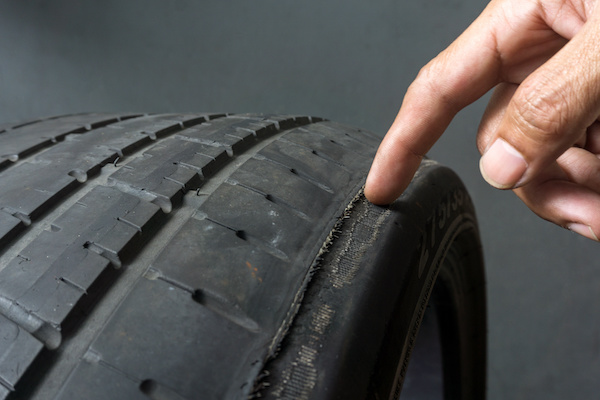Posted on 9/28/2022

A small part of the vehicle that frequently goes ignored is the timing belt. It is however a very important part because without it, your car becomes an immobile locomotive. So how can you tell when your timing belt needs replacement? Signs that your timing belt needs a change Perhaps more significant than distance is time when it comes to the timing belt. The average manufacturer recommends a timing belt with a maximum life of seven years. For instance, even though the vehicle has 20,000 miles on it but is seven years old, the belt needs to be replaced. Misfiring engines Timing belts that are too worn-out may slide along on the engine's camshaft or throw the valves out of order. Engine misfiring and piston malfunction are the results of this. Additionally, you can observe subpar engine performance and fuel efficiency. Trouble starting the engine If the automobile doesn't ignite at all, the timing belt is likely broken. Whenever the timing belt snaps while the vehicle is ... read more
Posted on 8/30/2022

Similar to the lightbulbs inside your home, the lights on your vehicle will go out eventually. Sometimes, they fail from old age or from accidents. All in all, you’ll need to get the necessary repairs and replace the light to keep you and others safe on the road. If your headlamps are halogen bulbs, read on to learn how to safely swap out your headlights. Put on a pair of gloves. Refer to your owner’s manual and look for the model of the bulb. Turn off your car and make sure it is cooled down. Open the hood of your vehicle and locate the headlight holder. Disconnect the wires – there are usually several. Remove the old bulb using a turning motion to remove it from the socket. Replace with the new bulb. It is important that you handle the bulb with care. Wipe it down before installing. The bulb should go in with the base first. Replace the headlight holder and wires. Do a test run. While changing a headlight may seem easy, it can get pretty c ... read more
Posted on 7/27/2022

Potholes are not just a pain in the seat, they can really damage your vehicle too, even parts of your car you wouldn't expect. Roads are most likely to form potholes in the spring and winter due to ice and running water wreaking havoc on the base layers underneath the pavement. Potholes occur when the soil beneath the pavement gets displaced or weakened. As traffic drives over the weaker spots the pavement cracks and leaves a hole in the road surface. Potholes start out small but can grow into huge car eating monsters. After hitting a pothole, the first thing to check are the tires & wheels. Potholes can cause major damage to tires such as sidewall bulges, flats or tread separation. This is caused by the hard edges left surrounding the pothole which can slice the rubber and then suddenly it's deflate gate. Wheels are susceptible to cracks, bends and chips on contact with a pothole. A bent wheel might lose its airtight seal, or won't roll correctly. Chips are easy to ... read more
Posted on 6/27/2022

Every component of your vehicle is critical to maintaining efficiency. Tires, for example, are essential to your vehicle's maintenance. Therefore, you must inspect your tires regularly to determine their condition. While tire wear is inevitable, understanding what causes them to wear down rapidly can help you prevent an accident and save you money in the long run. You might quickly lose control of your vehicle and cause accidents if your tires don't have enough traction on the road. Some drivers are baffled as to why their tires wear out so rapidly. Several factors can cause premature tire wear. Read on and get educated on why your tires are wearing out too fast. Proper Tire Pressure Low tire pressure is a significant cause of premature tire wear and failure on the road. Tires lose pressure because of regular driving. Make sure your tires are correctly filled at least once a week. Over-inflation is just as harmful when tires wear down in the central treads. This also lowers ... read more
Posted on 5/26/2022
.jpeg)
If you're driving your car and the steering system warning light suddenly comes on, your first instinct might be to panic and pull over to the side of the road so you can assess the problem. The steering system warning light could be signaling any number of problems. But it probably isn't anything that will result in an immediate breakdown of your vehicle or cause permanent damage to your steering system. Meaning of the Light If your steering system warning light is illuminated, it means there's a fault in one of your power steering components. You should get it checked as soon as possible Hydraulic Power Steering Systems These systems use fluid power to deliver a controlled level of assistance at low speeds. As you increase your speed, however, more force is required to move the wheels and provide steering assistance. To indicate that there's a problem with these systems, most cars will flash or illuminate a Power Steering warning light in your instrument cluster o ... read more